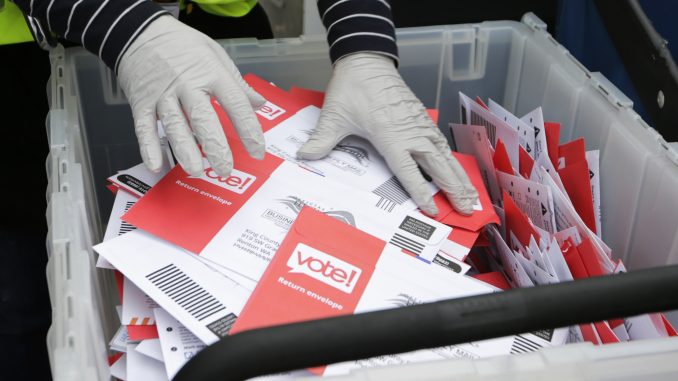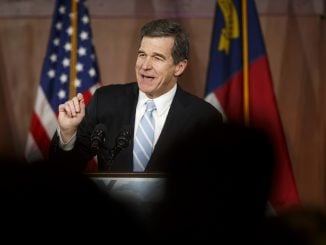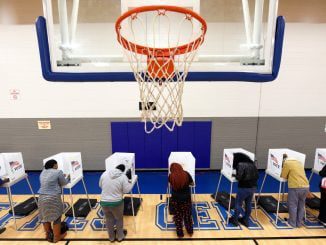
GREENSBORO — A judge is listening to arguments this week about whether the COVID-19 pandemic demands wholesale changes to North Carolina’s voting systems this fall.
U.S. District Judge William Osteen scheduled three days of hearings starting Monday involving a lawsuit by two voting advocacy groups and several citizens who fear current rules threaten their health if they want to vote. There’s already been a spike in mail-in absentee ballot applications, presumably by voters who prefer not to venture out to in-person voting centers and precincts.
The plaintiffs are led by Washington, D.C.-based Democratic attorney Marc Elias, and want Osteen to block several voting restrictions passed in the wake of the NC-09 absentee ballot request fraud. These include laws passed by the General Assembly and signed by Gov. Roy Cooper. Elias’ group seeks to undo how mail-in ballots are requested, who can help voters with forms and the hours early in-person voting centers operate. They also want drop boxes for completed absentee ballots and later registration deadlines.
Last Friday, N.C. State Board of Elections executive director Karen Brinson Bell ordered that counties open a minimum number of early in-person voting sites this fall as a way to buttress ballot access during the COVID-19 pandemic. They’ll also have to be open on otherwise optional voting weekends.
Brinson Bell cited her emergency powers during a “catastrophe arising from natural causes” and resulting in a disaster declaration for making changes before the high-stakes November election. The order also tells election workers that while they will have to wear face coverings at voting centers and Election Day precincts, voters will not be required to do so.
Brinson Bell, who issued the order after consulting with state board members, said the exceptional times required adjustments to protect the constitutional right to vote.
“If we do not take these measures, we risk much longer lines at voting sites and greater possibility of the spread of the coronavirus,” Brinson Bell said in a news release. “These are not acceptable risks in this important election year when we expect turnout to be high.”
The decision could force county election boards to add early in-person voting sites that could be open for 17 straight days, after board members have worried about finding enough workers willing to staff polling sites during the pandemic. County boards had been told to submit early vote plans by July 31.
The order requires that each county must have at least one early voting site for every 20,000 registered voters as of last week. For example, Wake County’s election board already had adopted a plan to operate 20 early voting sites. Barring a waiver, which Brinson Bell’s order allows the state board to grant, Wake would have to operate 38 sites, county board member Gerry Cohen said.
Senate elections committee Chairman Ralph Hise, a Mitchell County Republican, was suspicious of the order and questioned its legality.
“It appears that areas with high concentrations of Democrats will have dozens of early voting sites while more Republican areas may have just one,” Hise said in a news release.
Democrats hold three of the five positions on the state board appointed by Democratic Gov. Roy Cooper. Brinson Bell was the choice of the Democratic majority last year. The election board makeup has led to lawsuits pitting Cooper against GOP legislators.
State law requires early voting sites must open Thursday, Oct. 15, and close on Saturday, Oct. 31. State law makes it optional for county boards to open sites on the first two weekends of the period. This year, based on Brinson Bell’s order, they’ll have to hold at least 10 hours of voting on each of those weekends.
Early sites, with some exceptions for those inside county election offices, must otherwise be open from 8 a.m. to 7:30 p.m. on weekdays. But the board could extend the hours for those sites under her order.
GOP Rep. David Lewis of Harnett County, a key election law negotiator, said the order contained many “admirable” items, such as those for voting safety. But he said in an email message he was worried it “places a financial burden on our already struggling local governments.”
More than 60% of the votes in the 2016 presidential election in North Carolina were cast at early in-person sites.



